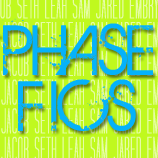
beck and call versus beckon call
This was a chat between Donna and me:
Merina: beckon call
me: Do you mean 'beck and call'???
Merina: yep. Perfectly good fic, everything else is FINE, until the "beckon call" pops up.
me: LOL...I don't think I have ever seen that one...
Merina: I mean, I can understand because beckon is a word, and beckon means...beckon. And beck and call means someone can beckon you whenever they want...and now that I've said it so many times, it's starting to sound dirty.
Want to know something funny? Beck actually originates from beckon (duh), so technically one isn't too far off when they use the incorrect form of beckon call.
So, let's look at the meaning and origin of the term beck and call per The Phrase Finder and have a little chuckle:
Beck and call
Meaning
To be at someone's beck and call is to be entirely subservient to them; to be responsive to their slightest request.
Origin
'Call' is used here with its usual meaning. 'Beck' is more interesting. The word, although current in English since the 14th century, isn't one that is found outside the phrase 'beck and call' these days. It is merely a shortened form of 'beckon', which we do still know well and understand to mean 'to signal silently, by a nod or motion of the hand or finger, indicating a request or command'.
If the term 'beck and call' had originated prior to the 14th century we would presumably now say 'beckon and call'. It didn't though and the first recorded use of 'beck and call' in print is in McLaren's Sermons, 1875:
"Christ's love is not at the beck and call of our fluctuating affections."
That is straightforward enough. What brings the phrase to the attention of etymologists is the confusion that some people have between it and 'beckon call'. This supposed phrase is a simple mishearing of 'beck and call'. The mistake comes about because no one uses 'beck' any longer, whereas 'beckon' is commonplace.
'Beckon call' could be said not to be a phrase in English at all, but it is gaining some ground nevertheless. At present (January 2007) Google finds 28,000 hits for 'beckon call' and 474,000 for 'beck and call'.
The misspelling began in the USA in the early 20th century. For example, this early citation from The Modesto News-Herald, May 1929:
A crowd of several hundred people heard a stirring address by B. W. Gearhart, Fresno attorney and American Legion official. "Down through the history of American wars, from the Revolutionary to the recent World conflict." the speaker declared, "America always has had at its beckon call men who would give their all for their country that people might enjoy peace and freedom.
The rogue phrase still appears in print in newspapers. Here's a recent example from the London Daily Mirror, by Phil Differ and Jonathan Watson:
"He [football manager Dick Advocaat] told me what he was particularly looking forward to when he comes to Scotland and that's having the entire Scottish press at his beckon call and I promised he won't be disappointed."
Just because 'beckon call' is based on a mishearing that doesn't mean it won't one day become accepted as proper English. Other phrases, like 'beg the question' for instance are routinely used incorrectly by so many people that the incorrect usage has now become the standard. Let's hope 'beckon call' dies a natural death, not only because it is essentially just a spelling mistake but because its adoption would signal the last gasp of the enjoyable little word 'beck'.





































































I haven't seen that one before. A similar one that drives me insane is intensive purposes instead intents and purposes. I am not a grammar nazi but it really does bug me.
ReplyDelete